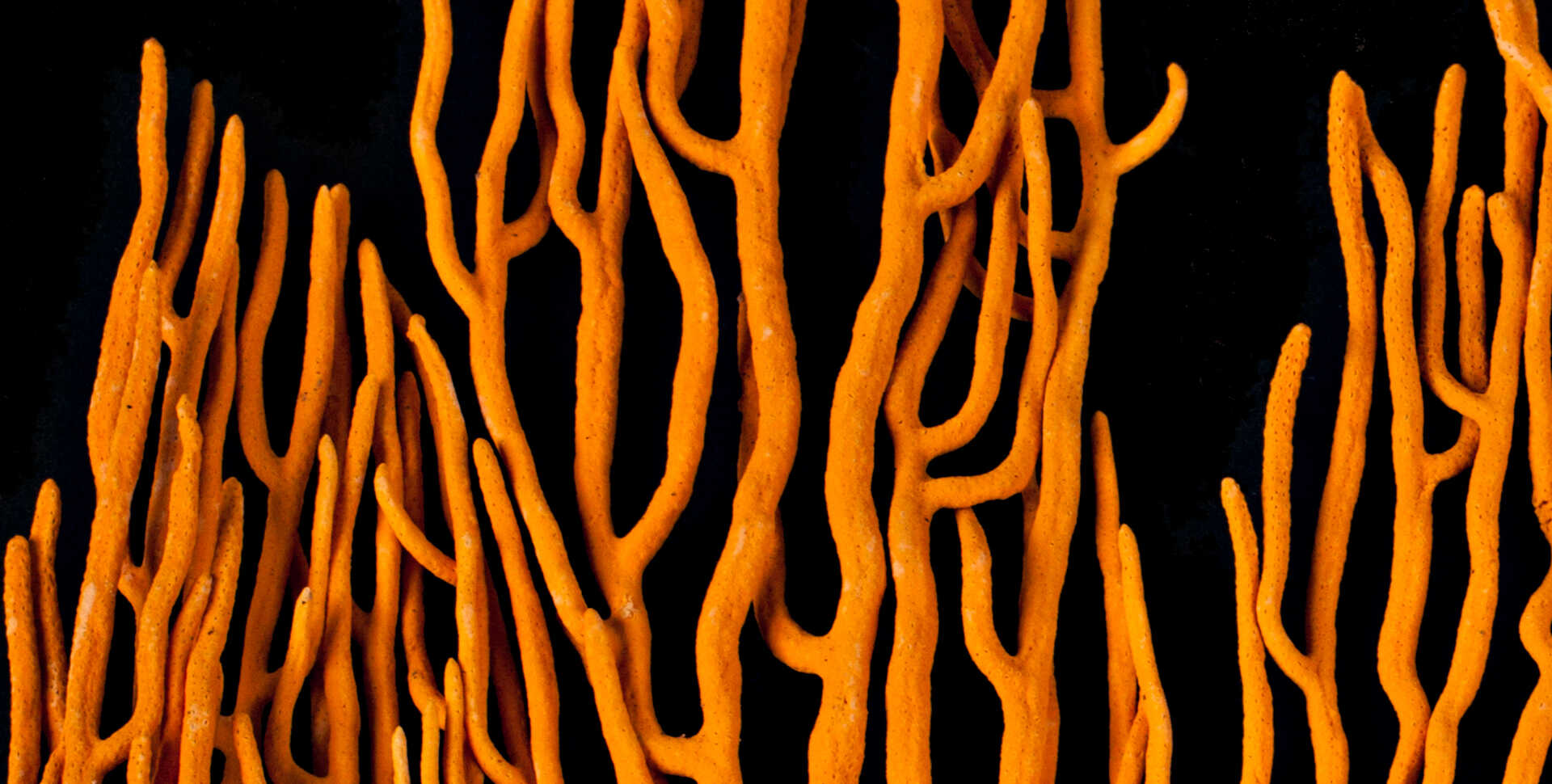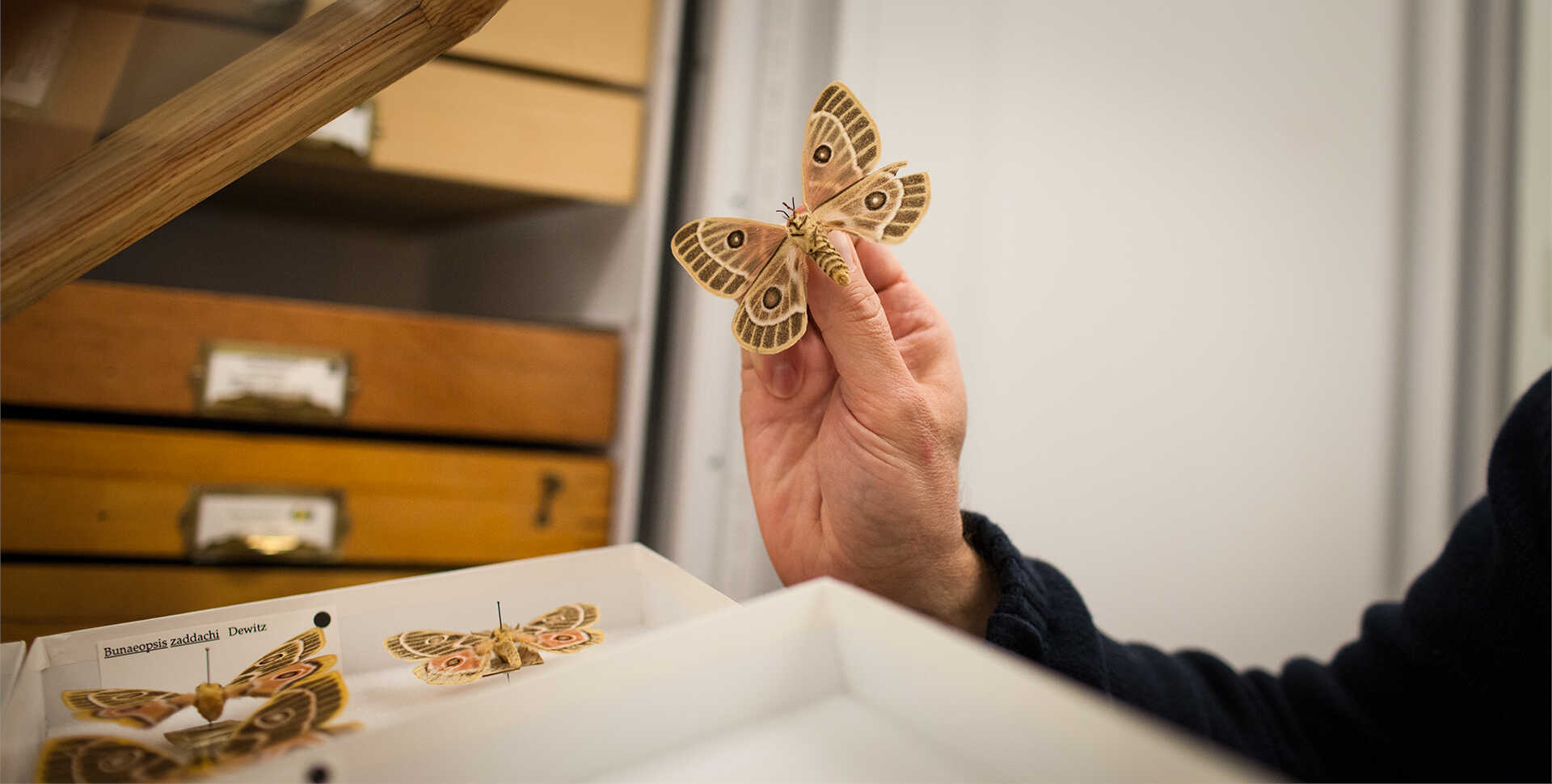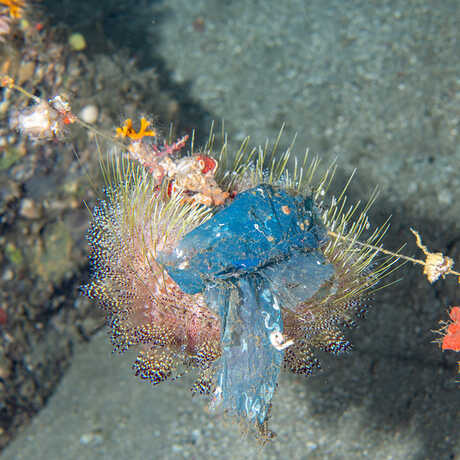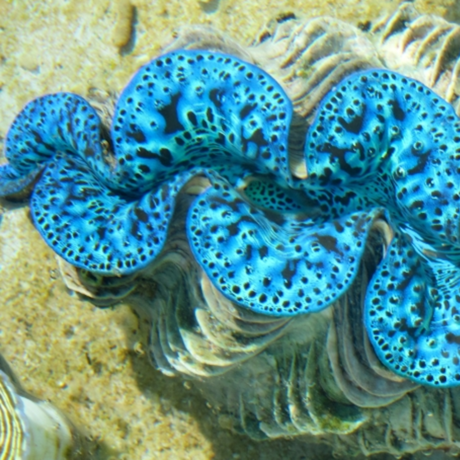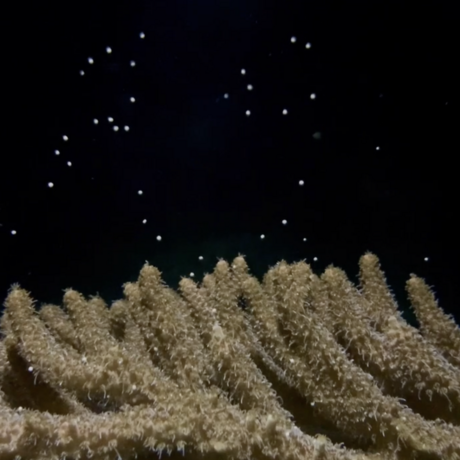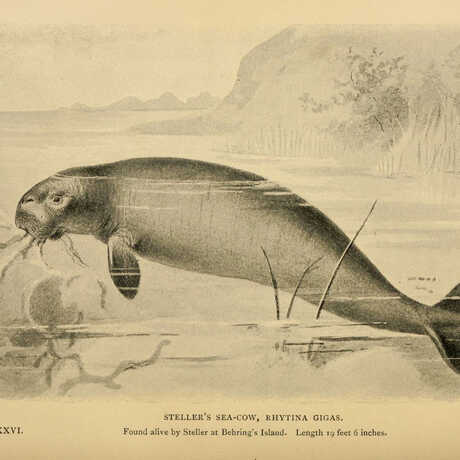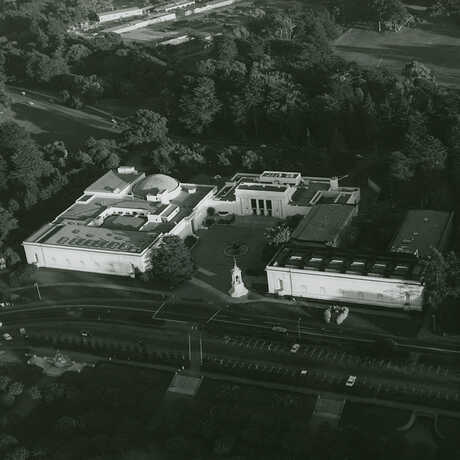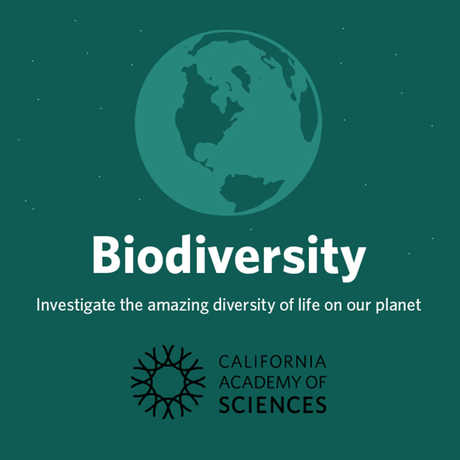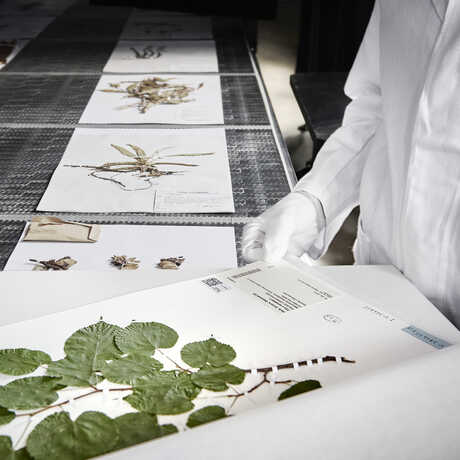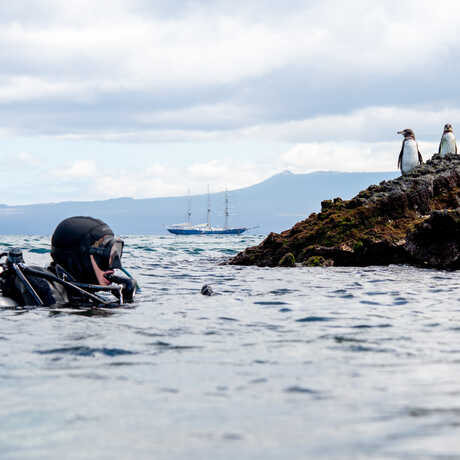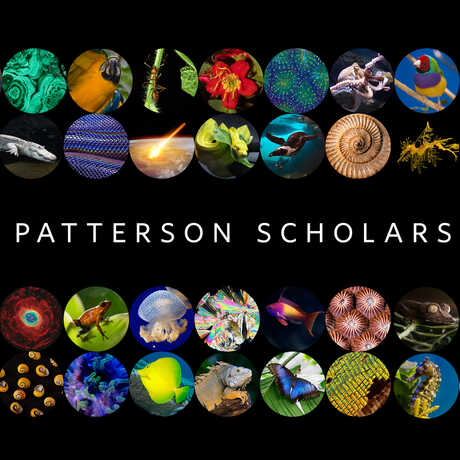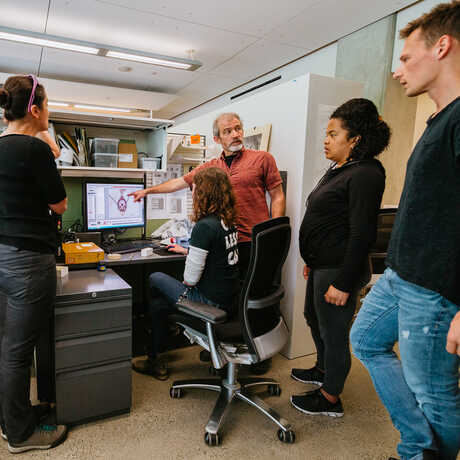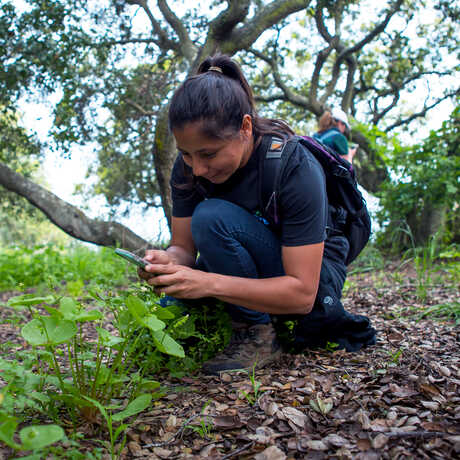Access our online collections or set up an in-person visit.
Anthropology
Botany
Entomology
Herpetology
Ichthyology
Invertebrate Zoology & Geology
Ornithology & Mammalogy
Institute for Biodiversity Science & Sustainability
Based at the Academy in San Francisco, the Institute for Biodiversity Science and Sustainability (IBSS) is at the forefront of efforts to regenerate the natural world through science, learning, and collaboration. Home to more than 100 research scientists and nearly 46 million scientific specimens from around the world—nearly 60,000 of which are alive and on display in the Academy’s Steinhart Aquarium—IBSS also leverages the expertise of more than 100 international Research and Field Associates, 450 distinguished Fellows, and our in-house team of aquarium biologists.
Through expeditions around the globe, investigations in the lab, and analysis of vast biological datasets, IBSS scientists work to understand the evolution and interconnectedness of organisms and ecosystems, the threats they face around the world, and the most effective strategies for ensuring they thrive into the future. Through deeply collaborative partnerships and innovative public engagement initiatives, they also guide critical conservation decisions worldwide, inspire and mentor the next generation of scientists, and foster responsible stewardship of our planet.
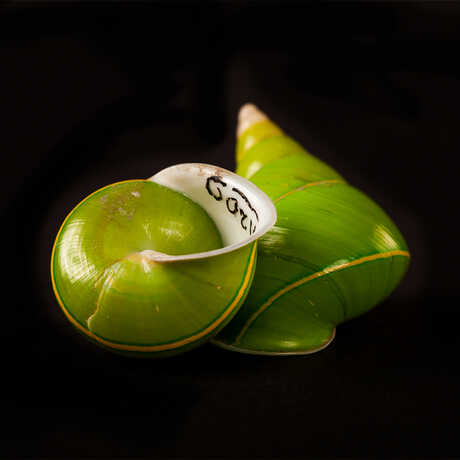
Curating invaluable collections
With nearly 46 million scientific specimens from around the world, the Academy’s research collections provide one of the best records of life on Earth, both now and in the past. This vast library of life—available to scientists around the world, both in person and online—helps us track the spread of disease, predict the impact of climate change, and much more.
Explore our collections in an interactive virtual tour produced by the San Francisco Chronicle.
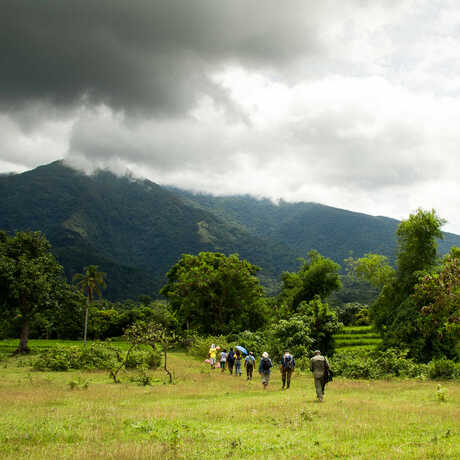
Filling in the tree of life
Despite intensive efforts to document life on Earth, scientists estimate that more than 90 percent of the species on our planet have yet to be discovered. Academy scientists are racing to discover new species and determine their place on the tree of life—with the ultimate goal of protecting them before they disappear.
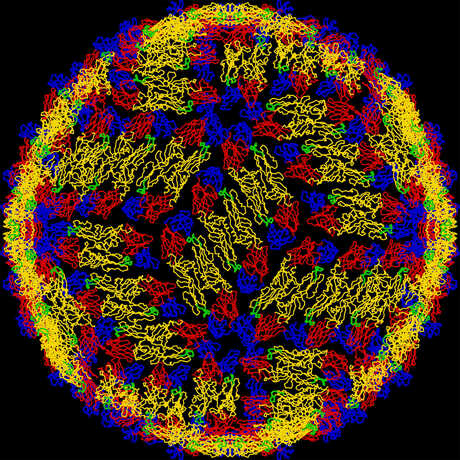
Understanding patterns and connections
To provide the best conservation recommendations, we must understand not only what lives where, but also how species reproduce, interact with one another and respond to threats. To address this need, Academy scientists map species distributions, analyze reproductive strategies, study food web and other ecosystem interactions, and more.
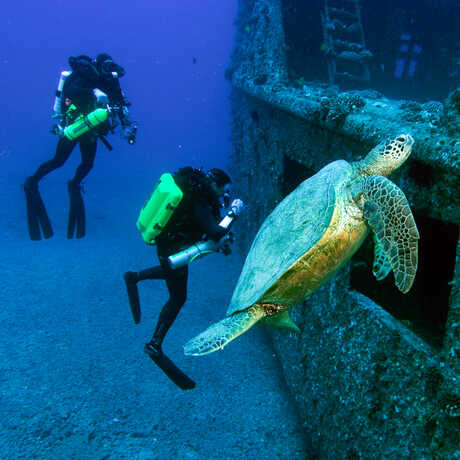
Tackling conservation challenges
Detailed knowledge about the evolution, distribution, and interconnectedness of life on Earth allows Academy scientists to make thoughtful conservation recommendations and participate in critical discussions about sustainability challenges. Through partnerships with governments and conservation organizations, community outreach, captive breeding programs, and public engagement initiatives, Academy scientists are helping to shape a sustainable future for our planet.
The California Academy of Sciences is committed to a work environment that values respect, integrity, diversity, innovation, and ingenuity. All visitors to IBSS need to agree to our Code of Conduct.
A governing group of approximately 450 distinguished scientists, Academy Fellows have made notable contributions to one or more of the natural sciences and help further the reach of our research and education initiatives through individual and collaborative efforts with Academy researchers. Nominated by their colleagues and selected by the Board of Trustees, Academy Fellows remain members of the Fellowship for life.
Research Associates are unsalaried, 3-year appointments in the Institute of Biodiversity Science and Sustainability. These individuals work closely with one or more Academy research departments and share our goals of advancing science and education.
The California Academy of Sciences’ Institutional Animal Care and Use Committee (the “IACUC”) seeks to support the Academy’s mission through its oversight of the Academy’s Program for the humane care and use of animals.

